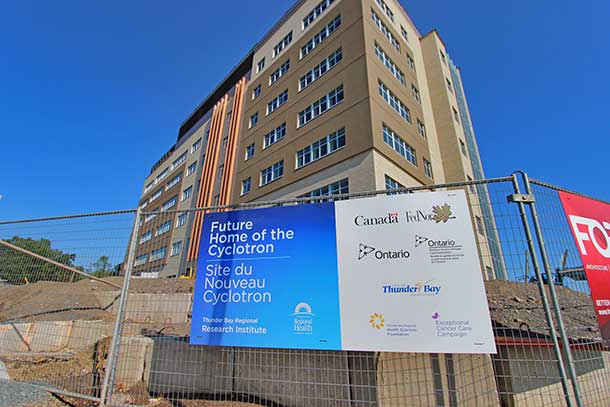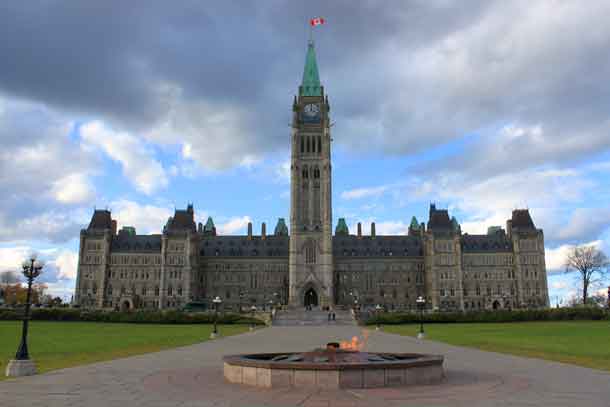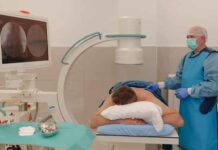

Can research drive economic development in Thunder Bay?
The answer is definitely yes – and it’s only getting better. The local economy got a huge boost this summer when Premier Kathleen Wynne visited Thunder Bay on July 30, 2014 to announce an additional $4 million towards the cyclotron and research funding through the Northern Ontario Heritage Fund Corporation (NOHFC).
That actually represents an estimated $12 million in economic activity for Thunder Bay and Northwestern Ontario. According to the Council of Academic Hospitals of Ontario (CAHO), each dollar invested in research and innovation generates an additional $3 in economic output.
“Our government is committed to making smart investments to improve healthcare and create jobs in Northern Ontario,” Premier Wynne said during the announcement. “I am pleased that this support will help the Institute perform cutting-edge research that will improve healthcare while creating 29 high-skilled jobs.”
The funding will stimulate the local economy in several ways as well as job creation. It will also attract students to Thunder Bay to work and study under TBRRI scientists, either directly or through Lakehead University or the Northern Ontario School of Medicine (NOSM).
The new investment also represents seed money to help the TBRRI create future revenue streams that will benefit our economy and help the research program grow even further.
“This $4 million in provincial funding will create new jobs and will help us reach our commercialization and economic development goals over the next three years,” said Dr. Roxanne Deslauriers, Acting CEO of the TBRRI and VP Research at the Health Sciences Centre.
The TBRRI and the local economy will benefit as new breakthroughs in research at TBRRI become new treatments and equipment – commercialization in itself will provide additional revenue streams. Equipment may be engineered and produced in Thunder Bay as well, creating further jobs and a possible new bio-tech manufacturing industry. It’s part of the knowledge-based micro-sector growing in Thunder Bay.
The cyclotron itself may generate revenue since the TBRRI plans to become a supplier of medical isotopes to healthcare facilities in Ontario and Manitoba. There are other, non-medical uses for these isotopes too, such as in the mining industry.
Aside from anything else, generating revenue will help ensure the research program will be sustainable moving forward so we can enjoy all the medical benefits that come along with it.
“The TBRRI is committed to building a sustainable research program that advances excellence in imaging to provide patient-focused research for the residents of Northwestern Ontario,” Dr. Deslauriers said.
Graham Strong
Part of the Thunder Bay Regional Research Institute’s mission is to enable patient-centred research that will make Thunder Bay and Northwestern Ontario healthier, wealthier, and smarter. This article is Part 2 of a three-part series examining how the TBRRI does just that.










